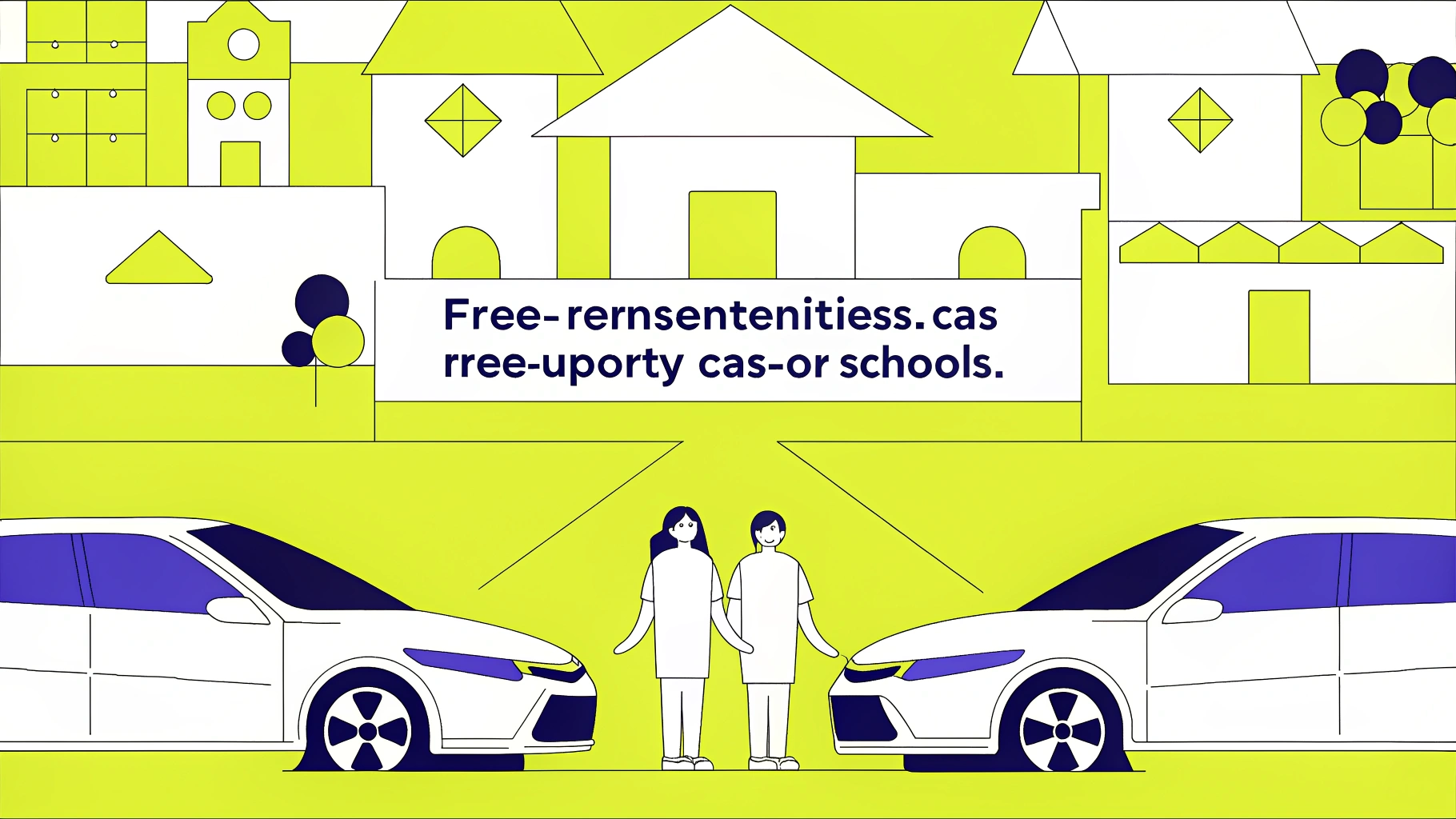Overview
The article titled “10 Automotive Brand Storytelling Examples to Inspire Engagement” underscores the pivotal role of effective storytelling in enhancing engagement for automotive brands. It showcases various successful storytelling strategies employed by prominent brands such as Nike, Patagonia, and Volvo. These narratives, grounded in emotional connection, authenticity, and community involvement, significantly bolster customer loyalty and elevate brand visibility. This compelling evidence demonstrates that brands can forge deeper relationships with their audience, ultimately driving engagement and loyalty.
Introduction
In a world where consumer choices are increasingly shaped by compelling narratives, automotive brands are uncovering the transformative power of storytelling. By weaving engaging tales that resonate with their audiences, these companies elevate their marketing strategies and foster deeper connections with potential customers. This article explores ten inspiring examples of automotive brand storytelling that not only captivate but also drive engagement. It raises a crucial question: how can brands leverage these narratives to stand out in an ever-competitive market?
Fresh Content Society: Tailored Social Media Strategies for Automotive Brands
Fresh Content Society (FCS) stands at the forefront of developing specifically tailored for the vehicle industry. By leveraging a profound understanding of customer behavior alongside the subtleties of various platforms, FCS empowers automotive companies to significantly enhance their online visibility and promote meaningful interaction. Their comprehensive approach encompasses:
- Detailed audits
- Strategic content development
- Proactive community oversight
- Effective
This ensures that companies not only reach but truly resonate with their target audiences.
In today’s fiercely competitive landscape, effective emerge as a pivotal element that shapes consumer perceptions and drives engagement. As vehicle manufacturers increasingly recognize the importance of personalized narratives, they look to automotive brand storytelling examples like FCS’s strategies to distinguish themselves and genuinely engage prospective customers.
FCS places a strong emphasis on , identifying the ideal influencers to engage communities and maximize partnership outcomes. This approach is further enhanced by innovative social media campaigns, including:
- Sweepstakes
- Contests
These are designed to boost and product visibility. Moreover, FCS harnesses to build trust and cultivate a robust online community, while also prioritizing organic growth strategies that ensure sustainable success.
With the rise of video content on platforms such as TikTok and Instagram Reels, FCS seamlessly integrates into their strategies, driving audience engagement and conversions. Their proven success is evidenced by , including achieving a remarkable 20X ROAS for clients like LINE-X, showcasing the effectiveness of their tailored social media marketing services. By focusing on organic development and community involvement, complemented by strong paid media management, FCS prepares vehicle brands for sustainable success in the digital landscape.

Nike: Empowering Through Emotional Automotive Narratives
Nike has mastered the art of , with audiences. In the automotive industry, Nike’s campaigns focus on , encouraging consumers to view their vehicles as essential components of their personal journeys. By highlighting relatable experiences and aspirations, Nike fosters a robust connection with its audience, thereby enhancing . This strategic approach not only cultivates a sense of belonging but also establishes a examples, guiding vehicle manufacturers in creating and motivate their customers. The emotional engagement generated through these narratives is crucial for and promoting advocacy in the competitive automotive market.

Patagonia: Ethical Storytelling in Automotive Marketing
Patagonia exemplifies the power of ethical storytelling, focusing on sustainability and environmental stewardship. Automotive companies can adopt similar strategies by using that weave ethical narratives into their marketing efforts. This could involve:
- Demonstrating
- Promoting eco-friendly vehicles
- Participating in community initiatives that resonate with environmentally aware individuals
By aligning their narratives with ethical values, vehicle manufacturers can cultivate stronger connections with their audience, enhancing loyalty and trust.
In 2025, the significance of is emphasized by buyer expectations. A striking 79% of individuals view green transport as pricier; however, many are prepared to pay extra for sustainable choices. This willingness reflects a growing trend, as 50% of consumers indicate that in a company. Moreover, companies that successfully convey their sustainability initiatives can anticipate greater engagement, with 21% of car purchasers indicating that social media directly affects their buying choices.
Fresh Content Society has showcased the impact of through transformative . For instance, clients like Old World Industries have successfully grown their social media presence from zero to 500K followers, showcasing the effectiveness of and . As Zach S. Stern from Pinball states, “FCS can easily stand for First Class Service based on the working relationship we have had with the team from Fresh Content Society.”
Case studies reveal that companies incorporating sustainability into their stories not only boost trust among buyers but also increase sales. Companies that highlight their eco-friendly practices have seen a notable increase in market share, with sustainable products growing 2.7 times faster than conventional alternatives. As the vehicle sector continues to progress, companies will need to incorporate automotive brand storytelling examples that adopt ethical narratives rooted in sustainability to resonate with the principles of today’s shoppers. Dr. Rana Farag emphasizes that as , the industry must be prepared to engage with this new generation of environmentally conscious consumers.

Airbnb: Relatable Storytelling for Automotive Engagement
Airbnb excels at crafting relatable stories that connect with its audience on a personal level. Vehicle manufacturers can significantly enhance their engagement by adopting a strategy that incorporates , focusing on authentic experiences and journeys.
By sharing that highlight the adventures and memories formed with their vehicles, automotive companies can and belonging among their audience. This relatability not only strengthens loyalty to the brand but also encourages individuals to share their own stories, thereby broadening the organization’s reach and influence.
Research indicates that:
- .
- Narrative serves as a powerful means to communicate these values effectively.
- Companies leveraging compared to those relying solely on logical content.
- 55% of consumers are more likely to remember a company that shares an engaging narrative, underscoring the impact of storytelling on brand recall.
For example, clients of Fresh Content Society have reported ; Cara K. Coleman from Powersports remarked that collaborating with FCS was the best decision for their . Likewise, Bob B. from Old World Industries noted that FCS facilitated their growth from zero to 500K followers across platforms.
By prioritizing , automotive brand storytelling examples can help vehicle brands enhance engagement and memorability, ultimately forging . Consider integrating customer stories into your marketing strategy to elevate engagement.

Volvo: Safety Innovations as a Storytelling Tool
Volvo has established itself as a frontrunner in , weaving this commitment into the fabric of its storytelling. By highlighting innovations such as enhanced , including its ‘Safe Space Technology,’ and sharing compelling , Volvo effectively communicates its to the public. This focus on safety not only distinguishes Volvo from its rivals but also nurtures confidence among buyers who prioritize safety in their vehicle choices.
Significantly, 98% of buyers prioritize safety in their vehicle purchase decisions, underscoring the increasing demand for [safety features](https://itsdigest.com/safety-consumer-priority) across demographics. Additionally, a remarkable 92% of Millennials express a preference for vehicles equipped with computer vision systems that enhance safety by detecting children and pets left in hot vehicles. This statistic illustrates how can significantly influence purchasing decisions.
Automotive companies can draw inspiration from Volvo’s strategy by embedding product innovations into their . This approach demonstrates how these features not only enhance safety but also enrich the overall driving experience. By emphasizing safety in their narratives, vehicle manufacturers can foster and set themselves apart in a saturated market.
Gucci x The North Face: Luxury Brand Storytelling in Automotive
The partnership between Gucci and The North Face exemplifies the transformative influence of within the automotive landscape. By merging high fashion with outdoor adventure, this collaboration crafts an engaging story that resonates with individuals who value both style and functionality.
from such collaborations by seeking partnerships that enhance their and . Collaborating with companies that share comparable values empowers vehicle manufacturers to develop automotive brand storytelling examples that resonate with diverse market segments, ultimately .
This strategy not only enhances visibility for companies but also positions vehicle manufacturers as innovative players in a competitive market, particularly as the is anticipated to expand to USD 1,046.87 billion by 2030.
Furthermore, with the rising demand for —especially electric and hybrid models—automotive companies can leverage partnerships to showcase their commitment to sustainability while attracting environmentally conscious consumers. Additionally, incorporating in premium automobiles can enrich narratives, demonstrating how collaborations can in a rapidly evolving market.

Dove: Authenticity in Automotive Brand Storytelling
Dove has established its identity on authenticity, showcasing real individuals and genuine stories in its campaigns. For vehicle manufacturers, embracing authenticity in can significantly enhance . A striking 86% of individuals believe authenticity is crucial in product preference, underscoring the . By highlighting actual customers and their experiences with vehicles, automotive companies can create automotive brand storytelling examples that resonate with their audience. This authenticity fosters , encouraging them to share their own stories, thereby amplifying the brand’s reach and impact in the market.
exemplifies this strategy, as evidenced by clients like Bob B. from Old World Industries, who observed that FCS elevated their from nothing to 500K followers across platforms. Similarly, Cara K. from Coleman Powersports stated, “Partnering with FCS has proven to be the best decision we made for our social media presence,” illustrating the transformative impact of .
To effectively implement this strategy, vehicle marketers should focus on capturing and sharing as automotive brand storytelling examples that reflect the values and expectations of their target audience. As consumers increasingly seek authentic interactions, the ability to convey these narratives will be crucial for vehicle companies aiming to build lasting relationships and enhance their reputation in 2025.
Honda: Community-Centric Storytelling in Automotive Marketing
Honda has effectively woven into its marketing strategies, which serve as that emphasize the importance of local connections and relationships. Honda cultivates a sense of belonging among its audience by sharing automotive brand storytelling examples that highlight community involvement and customer experiences. This approach not only but also positions in their clients’ lives.
For instance, the SoCal Honda Dealers’ ‘Helpful Honda’ initiative is one of the notable automotive brand storytelling examples that illustrate how . They engage in random acts of kindness that resonate with local residents, such as providing free gas and supporting local schools. Moreover, with throughout their car purchasing journey, it is notable that 21% of car buyers report that social media directly influenced their decisions. This underscores the significant impact that companies can have on buying choices when they actively engage with their communities.
Fresh Content Society’s recent success with LINE-X, achieving over 6 million video views and an impressive 20X return on ad expenditure within just 90 days, further illustrates the power of automotive brand storytelling examples and in capturing audience interest. By showcasing their contributions to local communities through Instagram Reels and Stories, and by interacting with audiences via polls and shareable content, vehicle manufacturers can strengthen their connections with consumers, ultimately fostering loyalty and trust.
Client testimonials, such as those from Cara K. Coleman and Zach S. Stern, further demonstrate the transformative impact of these strategies on . Additionally, measuring the effectiveness of these community engagement efforts is crucial for optimizing future strategies and understanding their true impact.

Starbucks: Fostering Loyalty Through Engaging Automotive Narratives
Starbucks has mastered to foster , creating narratives that resonate with its audience. For vehicle manufacturers, using can significantly . By sharing automotive brand storytelling examples that emphasize the experiences and feelings linked to their vehicles, automotive companies can establish a . This engagement not only promotes but also who share their positive experiences with others, amplifying the company’s reach and impact.
As Ben Stewart notes, ‘To make an , you’ll have to figure out what about your business will make your future and current customers have positive feelings about you when they think about service or vehicles.’
Companies like BMW have effectively utilized automotive brand storytelling examples that emphasize emotional narratives instead of merely displaying vehicles, leading to enhanced customer loyalty and memorability. ; research shows that an emotional connection frequently leads to steadfast loyalty and can turn customers into vocal supporters for the company.
Consequently, vehicle manufacturers should focus on selecting captivating, credible, and reliable narratives that connect with their local communities. This approach can further strengthen customer loyalty and support.

Ferrari: Heritage and Performance in Automotive Storytelling
Ferrari’s storytelling captivates automotive enthusiasts through its rich heritage and unwavering commitment to performance. By emphasizing its , particularly its ties to Formula 1, along with the meticulous craftsmanship behind each vehicle, and prestige effectively. This narrative strategy not only enhances product identity but also fosters who appreciate the history and artistry of their vehicles.
Automotive companies can learn from like Ferrari’s model by embedding their own heritage and performance narratives into their marketing strategies. Research indicates that companies with can experience a 20% and an astonishing 2,706% boost in perceived worth. This underscores the in with consumers.
Furthermore, 92% of consumers express a preference for advertisements that resemble stories, highlighting in the automotive sector. By prioritizing storytelling, brands can create a more immersive experience that resonates with their audience, ultimately .

Conclusion
Automotive brand storytelling has emerged as a vital strategy for fostering engagement and building lasting connections with consumers. By leveraging compelling narratives that resonate with target audiences, brands can distinguish themselves in a competitive market and enhance customer loyalty. The examples discussed illustrate how various companies, from Fresh Content Society to iconic brands like Nike and Ferrari, have successfully utilized storytelling to create meaningful interactions and drive brand advocacy.
Key arguments throughout the article highlight the importance of emotional engagement, authenticity, and community involvement in automotive marketing. Strategies such as ethical storytelling, relatable narratives, and innovative social media campaigns have proven effective in capturing consumer interest and fostering trust. Moreover, the integration of sustainability and safety into brand narratives reflects the evolving expectations of today’s consumers, particularly among younger generations who prioritize ethical choices and personal connections.
As the automotive industry continues to evolve, embracing storytelling as a core marketing strategy will be essential for brands aiming to thrive in the digital landscape. Companies are encouraged to explore diverse storytelling techniques, engage with their communities, and prioritize authentic narratives that resonate with their audience. By doing so, automotive brands can not only enhance their visibility but also cultivate deeper relationships with consumers, ultimately driving loyalty and success in the years to come.
Frequently Asked Questions
What is Fresh Content Society (FCS) and what services do they offer for automotive brands?
Fresh Content Society (FCS) specializes in developing tailored social media strategies for the automotive industry. Their services include detailed audits, strategic content development, proactive community oversight, and effective paid media management to enhance online visibility and engage target audiences.
How does FCS help automotive brands with storytelling?
FCS emphasizes the importance of automotive brand storytelling to shape consumer perceptions and drive engagement. They assist brands in creating personalized narratives that distinguish them in a competitive landscape, thereby fostering genuine connections with prospective customers.
What role do influencers play in FCS’s strategies?
FCS focuses on strategic influencer management to identify the right influencers who can effectively engage communities and maximize partnership outcomes, enhancing brand visibility and community engagement.
What types of campaigns does FCS implement to boost engagement?
FCS implements innovative social media campaigns such as sweepstakes and contests designed to increase community engagement and product visibility.
How does FCS utilize user-generated content (UGC)?
FCS harnesses user-generated content (UGC) to build trust and cultivate a robust online community, which is an integral part of their organic growth strategies.
What is the significance of video content in FCS’s strategies?
FCS integrates high-retention short-form videos into their strategies on platforms like TikTok and Instagram Reels to drive audience engagement and conversions.
Can you provide an example of FCS’s success in social media marketing?
FCS achieved a remarkable 20X return on ad spend (ROAS) for clients like LINE-X, demonstrating the effectiveness of their tailored social media marketing services.
What is Nike’s approach to emotional storytelling in the automotive industry?
Nike employs emotional storytelling by crafting narratives that emphasize empowerment and resilience, encouraging consumers to view their vehicles as essential to their personal journeys, which enhances customer loyalty.
How can automotive companies adopt ethical storytelling similar to Patagonia?
Automotive companies can adopt ethical storytelling by demonstrating sustainable manufacturing methods, promoting eco-friendly vehicles, and participating in community initiatives that resonate with environmentally aware consumers.
What are consumer expectations regarding sustainability in automotive narratives?
In 2025, a significant number of consumers (79%) view green transport as more expensive, yet many are willing to pay extra for sustainable choices. Additionally, 50% of consumers indicate that environmental factors significantly affect their trust in a company.
What impact does sustainability have on automotive sales?
Companies that successfully convey their sustainability initiatives can expect greater engagement and an increase in market share, with sustainable products growing 2.7 times faster than conventional alternatives.
How is Fresh Content Society positioned to help brands engage with Gen Z consumers?
As Gen Z becomes more prominent in the automotive market, FCS emphasizes the need for brands to incorporate ethical narratives rooted in sustainability to resonate with this environmentally conscious generation.

